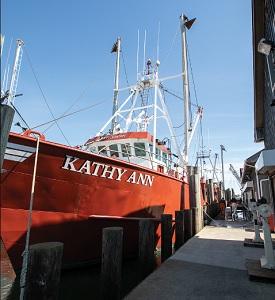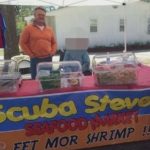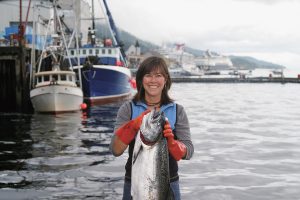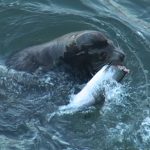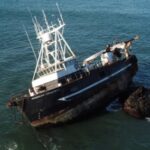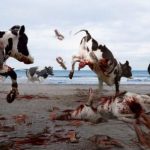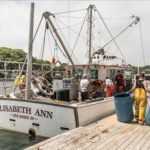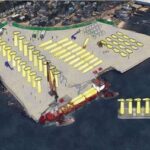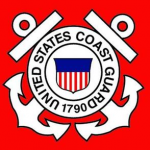Monthly Archives: May 2020
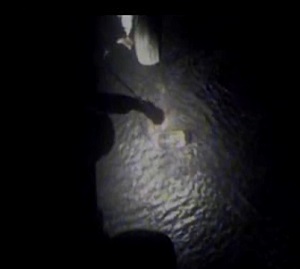
After two weeks, the Coast Guard, and good Samaritan rescue 2 men – presumed lost at sea
The Coast Guard and a good Samaritan rescued two fishermen, Monday, who were presumed lost at sea, 23 miles northeast of Cat Island, Bahamas. Rescued were Domingo Jimenez, 45, and Ramon Castillo, 29, both from Santo Domingo, Dominican Republic. Coast Guard Sector San Juan watchstanders received a report from the good Samaritan vessel Signet Intruder crew reporting they were flagged down by two people in a vessel, who reported to have been adrift for approximately two weeks. The watchstanders directed the launch of an OPBAT Jayhawk helicopter crew to assist. “These two men were presumed lost at sea but were found and safely rescued because a good Samaritan spotted them,” Video, >click to read< 18:48
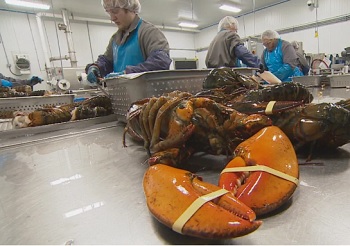
Buyers setting catch limits, processors struggle with labour shortages, ‘Lots of lobster, but we can’t bring them in’
“Pretty good catches so far. But almost everybody’s on a quota right now,” said Gerard Whalen, a long-time fisherman in Naufrage in eastern P.E.I. “We’re seeing lots of lobster, but we can’t bring them in.” “We just can’t get rid of them,” added Lucas Lesperance, who docks a few boats down from Whalen. Lesperance said he’s pulled up about 1,000 pounds of lobster some days, but his buyer has only been accepting 600-700 pounds. According to P.E.I.’s Seafood Processors Association, that is the big problem across the industry. Executive director Jerry Gavin said Island processing plants — which rely heavily on temporary foreign workers — are about 200 workers short this season. >click to read< 17:23
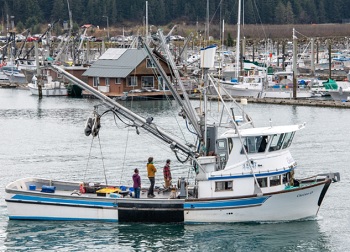
Still slow going for Copper River opener, remains closed at least through Monday, May 25
Opening harvests of the 2020 Copper River commercial fishery, complicated by effort to keep the COVID-19 pandemic at bay, got off to a slow start for the first two 12-hour openers. The overall catch of Chinook and sockeye salmon came in way below forecast. The first two 12-hour periods brought processors an estimated 6,025 sockeyes and 3,255 king salmon, Copper River commercial fishery biologists said. The 372 deliveries from the first opener on May 14 included just 1,473 sockeyes and 1,552 Chinooks. Then on May 18, there were 412 deliveries, with 4,552 sockeyes and 1,703 Chinooks. The projected harvest for the second period alone had included 28,590 reds. >click to read< 16:16
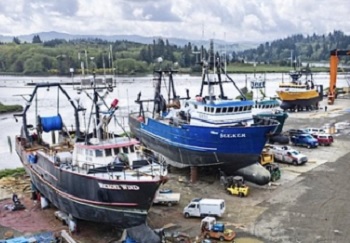
Something Big is in the works at the Port of Toledo’s Shipyard, Repair work continues, unabated!
JH Kelly ironworker crews are close to half way through the job of constructing the port’s towering new work building. When completed later this year this year the $5.1 million, 90-foot tall structure will provide the yard with a contained, all weather environment to conduct painting, sandblasting, welding, and other work. Repair work at the Toledo yard has continued unabated despite the ongoing national health crisis and its impact on the larger economy. >click to read< 14:17
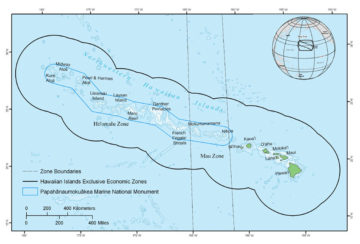
Hawaii Fish Council Urges Trump To Open Papahanaumokuakea National Marine Monument To Fishing
The council’s latest push comes on the heels of an executive order President Donald Trump signed on May 7 that’s meant to slash federal regulations and ease environmental burdens on American aquaculture and commercial fishing industries in the midst of the global coronavirus pandemic. In an opinion piece for the Wall Street Journal, two of Trump’s top advisors, Joe Grogan and Peter Navarro, said the president’s new order would “help reduce pain in the grocery checkout line — and also strengthen U.S. food production against foreign competition.” A provision in Trump’s order calls on the nation’s eight regional fishery management councils to submit “a prioritized list of recommended actions to reduce burdens on domestic fishing and to increase production within sustainable fisheries.” Skeptics, including U.S. Rep. Jared Huffman,, Trump’s order gave each council 180 days to submit recommendations to the Secretary of Commerce. >click to read< 12:42
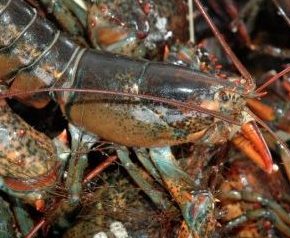
State of Maine: Lobstermen are feeling the pinch
Maine lobstermen are in a world of hurt, caught in a two-pronged assault on their livelihood. The pincer claw is the pandemic, causing their market to collapse. The crusher claw? That would be the latest lawsuit over whale rules.,, Even the elders in the fishing community are rattled. They are usually the ones who face fluctuations in the market with zen-like calm. It’s been down before, they say, and it will come back. Every year is not going to be a record-breaker. This time they’re worried. Younger fishermen who have gotten accustomed to record catches every year have taken on significant debt (bigger boats, newer trucks) and are freaking out. Jill Goldthwait >click to read< 11:09
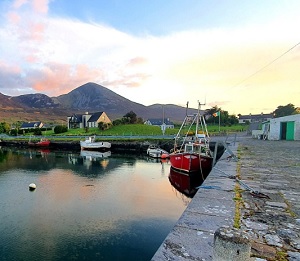
Unsung Heroes: Austie Bourke – The fight for survival
Murrisk Harbour, where Austie Bourke left in 1947 on a journey which saw him and two others lost at sea for three weeks before being miraciously found alive off the Outer Hebrides in Scotland. Several people tried to break the news to Maria Bourke but she was having none of it. Her husband was surely dead, they tried to gently tell her. Lost at sea for three weeks, he could not have survived. It was past the stage for them of hoping he would be found alive and slimmer by the day were the chances of even finding a body. But nobody knew Austin ‘Austie’ Bourke like Maria and her faith in him was not founded in denial; rather it was rooted in her knowledge of him always returning to his beloved Murrisk during a lifetime of peril at sea. “No storm could beat my husband,” she insisted, 73 years ago this month. Maria Bourke was right. >click to read< 10:03
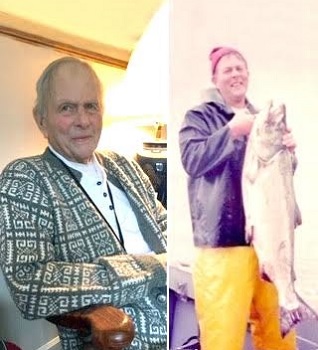
Boatbuilder Ralph Howard Sorensen Jr.
Ralph was born in Edmonds, WA, and maintained his home there, graduating from Edmonds High School in 1946. He attended Everett Community College before being called to serve his country in the Korean War,,, He went on to became an apprentice boat builder at Howard Anderson Boat House, which later became Anderson Marine next to the Edmonds ferry terminal. Ralph specialized in building commercial fishing boats. He started his own boat shop called Tidewater Boat Works, where he built gillnetters, trollers, seiners, and did repairs on sailboats or anything that floated and was made out of wood. >click to read< 09:07
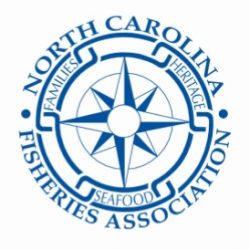
Always NC Fresh! NC Commercial Fishing Resource Fund Launches New Campaign, NCFA Weekly Update for May 22, 2020
Glenn Skinner, Executive Director of NC Fisheries Association (NCFA) and NCCFRF Committee Member, stated, “The Always NC Fresh public relations campaign could not have come at a better time as many of our fishermen have been hit hard by the impacts of COVID-19.” Skinner added, “Commercial fishing has been a part of North Carolina’s coastal communities and economy for hundreds of years, and it was time for us to reintroduce our fishermen to the citizens of this great state. We have a great story to tell and we’re proud to be a part of this new campaign.” “Commercial fishermen are good people who are a fundamental part of the economy and way of life in North Carolina’s coastal communities,” said Brent Fulcher, NCFA Chairman. >click to read< 08:04
North Carolina Fisheries Association Weekly Update for May 22, 2020 – >click to read< to read all the updates >click here<, for older updates listed as NCFA >click here<
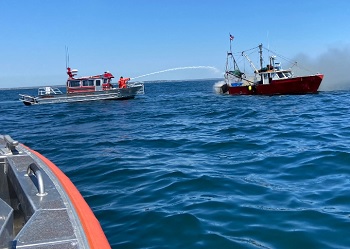
Fishing boat catches fire and sinks in Narragansett Bay
The Northeast Sector of the United States Coast Guard says that a 40-foot fishing boat sank in the Narragansett Bay Thursday afternoon following a fire on the boat. The Coast Guard said they received a report of a boat fire around 11 a.m. Thursday about 2.5 miles southeast of Point Judith. The three people on board were safely rescued and brought to shore by a crew from STA Point Judith. They were then transferred over to local EMS, the coast guard says. >click to read< 20:57
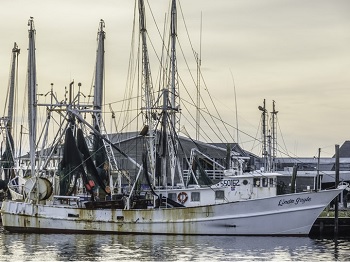
For troubled Outer Banks commercial fishing industry, Coronavirus is one more blow. Louisiana, too.
At the state and federal level, increasing regulatory requirements and catch quotas, fueled in part by aggressive lobbying of elected officials by the well-funded recreational fishing industry, have caused even more commercial fishermen to leave the industry. And now COVID-19 strikes another blow to the solar plexus of an industry that, no pun intended, can barely keep its collective heads above water. And interviews with two local operations — of distinctly different sizes — help shed light on how the COVID crisis has affected the Outer Banks’ commercial fisheries. Mark Vrablic of the Willie R Etheridge Seafood Company, one of the last remaining large-scale seafood distributors in Wanchese, minced no words when he described the losses created by the worldwide pandemic. >click to read< 19:15
Shrimp industry in Louisiana hit hard by Coronavirus pandemic – Shrimp processors are shut down and the baskets that are usually filled are empty. Brown shrimp season started on Monday, and so far it hasn’t been good. “Absolutely terrible, last year I had 42 boats going out during brown shrimp season, this year I only have 9 boats,” said Craig Napoli, C&A Seafood. >click to read<
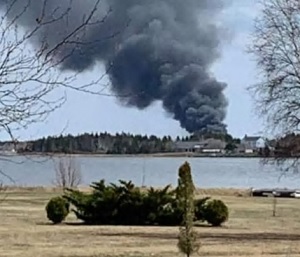
UPDATED – New Brunswick: ‘This is terrible’, Val-Comeau seafood processing plant goes up in flames
A seafood processing plant in northeastern New Brunswick has gone up in flames Thursday afternoon. A plume of thick black smoke could be seen coming from Les Pêcheries de Chez Nous facility in Val-Comeau, a small coastal community now part of the regional municipality of Tracadie. Emmaneul Moyen, a representative of the Maritime Fishermen’s Union, told Radio-Canada it’s devastating news. He said about 100 local fishermen sell their catch to the plant, which had been operating at full capacity. “We are probably talking about 250 workers,” he said. >click to read the updated story< 16:47
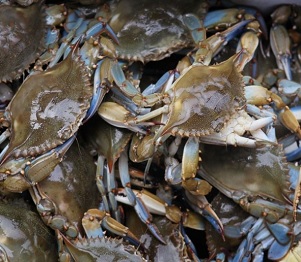
Female Blue Crab Population Up In Chesapeake Bay, Juvenile Numbers Low
Chesapeake Bay blue crab population appears to have a healthy number of spawning-age female crabs, according to the 2020 Blue Crab Winter Dredge Survey. Maryland, Virginia and the Potomac River Fisheries Commission aims to conserve more than 70 million adult female crabs annually to ensure enough young crabs can be produced to sustain the population, a task that has now been achieved for the sixth consecutive year. This year’s survey estimates 141 million adult female crabs were conserved, which is above the long-term average of 126 million. The total amount of blue crab in the Chesapeake Bay in 2020 was 405 million crabs,,, >click to read< 14:56
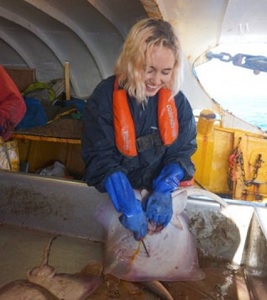
‘Seasickness covers you like a shawl’ — my week on a Cornish trawler learning to fish
Though I set my alarm for 5.45am for this, my first morning on the Filadelfia, I sleep right through and rouse to find it is 9am and I am alone in the cabin. I can still feel seasickness menacing somewhere about my person. And so, though I hate the way it muffles my senses, I take another pill before scrambling up the ladder to join the men upstairs. I enter the galley to multiple jeers of: “Nice lie in?” and: “Get your beauty sleep?” Since everyone is seated about the table, I gather I must have woken up just after the Fishwife Call, when whoever is on watch puts the kettle on, makes mugs of coffee and then heads down to wake up the snoozing crew for the next haul. >click to read< 10:16
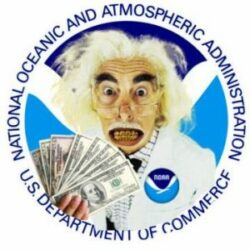
Eight Projects Selected for S-K Funding – Here we go again! Fisherman get the shaft, thanks to NOAA
To those fisherman who put in an application for Saltonstall-Kennedy Program Funding money, I feel badly for you who were not selected. Again, NOAA gave the money to universities, foundations, and other special interests and not you, who it should be for. Unfortunately for those who applied, this has been going on for years under NOAA’s selection of those that apply. I believe when authored by Senators Leverett Saltonstall (R-Mass.) and John F. Kennedy (D-Mass.) in 1954 to promote and market domestic seafood, that they didn’t think our fisherman would be left out. Two years ago, I was chosen by NOAA to serve on a panel to review those who applied.,, by Sam Parisi, >click to read< including the press release. 19:12
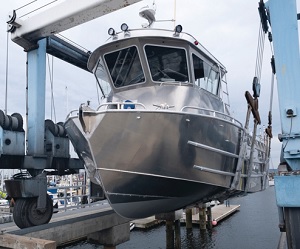
Port of Port Townsend: Marine trades plan for reopening in Phase 2
When the governor first announced his “Stay Home, Stay Healthy” order, boat builders in Port Townsend put down their sanders, chisels and saws and headed home. But as the fishing season drew closer, and Alaskan towns began to institute two-week quarantines for incoming boats, crews scrambled to get their fishing vessels ready. On March 30, Gov. Jay Inslee said marine trades businesses could continue to work on commercial fishing vessels in addition to government and transportation vessels. “I don’t think there’s any debate that the marine trades have been essential workers throughout the closure,” said Eron Berg, director of the Port of Port Townsend. While the port scaled down haulouts, marine trades businesses scaled down to just working on commercial fishing vessels. ACI Boats, a boat construction company at the port’s boat yard, launched a newly built commercial fishing vessel that will head to Bristol Bay amid the pandemic. >click to read< 17:39
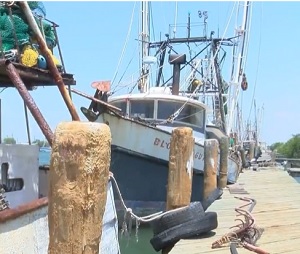
Brownsville: How Coronavirus pandemic is affecting shrimp producers
About two months ago, one of Andrea Hance’s boats came in with about 10,000 pounds of shrimp. Hance said on average the price of shrimp that they get from the boat is about $5, but buyers were not willing to pay that much. “They were coming back after they told us that they were not going to bid at all, you pressure them a little bit and then they said well we’ll give you a bid, but you’re not going to like it,” said Hance. “Well we ended up selling our shrimp for $3 a pound so we lost quite a bit of money on the last trip.” These are prices that John Keil Burnell, who is one of the owners of Shrimp Outlet in Brownsville, is seeing. Video, >click to read< 16:16

DFO closes fishing area after right whales spotted in Gulf
DFO is implementing the first season-long fishing closure of the year after North Atlantic right whales were spotted in the Gulf of St. Lawrence. DFO says a cluster of eight grids in the middle of the Gulf will be closed until November 15. In a release, the department says the closure is expected to have minimal impacts on nearby fishing areas for crab, lobster and groundfish. >click to read< 14:52
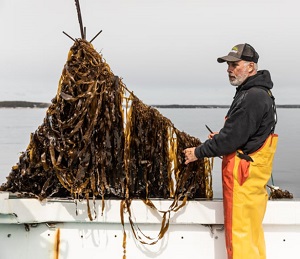
‘I’m not a quitter’: lobstermen turn to kelp farming in the face of climate crisis
Back from a day of scalloping, lobsterman Bob Baines has docked his boat, the FV Thrasher, at the Spruce Head Fishermans Co-op. His sternman, David McLellan, clad in waterproof overalls like Baines, shucks the last few hauls, tossing the meats into a bucket and the shells overboard. It’s the last week of scallop season, but there is a new venture on the horizon. Baines, 64, steers the Thrasher back out toward Hewett Island on Penobscot Bay to check on the underwater kelp farm that he “planted” in December. It’s a willowy structure made up of moorings, buoys and ropes that hovers 7ft underwater and spans 1,000ft wide, like a monster cat’s cradle. Baines is among the latest of 19 veteran lobstermen along the Maine coast who are applying their hard-earned expertise to kelp farming. >click to read< 12:46
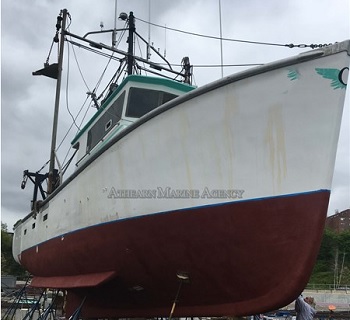
Athearn Marine Agency Boat of the Week: 50′ Fiberglass Stern Trawler, 425HP Volvo Diesel, Northern Lights 12 kw Generator
To review specifications, information and 23 photos, >click here< Vessel is in good condition. To see all the boats in this series, >click here< 11:44
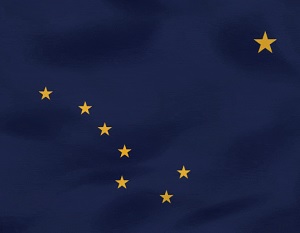
‘We’re open’: Alaska businesses can operate at full capacity Friday, Dunleavy says
Alaska businesses can open at full capacity on Friday and sports can resume, Gov. Mike Dunleavy announced Tuesday evening. “Friday, we’re open for business across the state of Alaska,” Dunleavy said at a news conference. Alaska will enter phase three and four of the government’s five-phase reopening plan at 8 a.m. Friday. That means restaurants, bars, gyms and other businesses can fully open. All churches, libraries and museums can too. Sports and recreational activities can resume, Dunleavy said. It’s the governor’s latest major lift of coronavirus-related restrictions. Previously, certain businesses could only operate at 25% to 50% capacity. “It’ll all be open, just like it was prior to the virus,” Dunleavy said. >click to read< 10:29
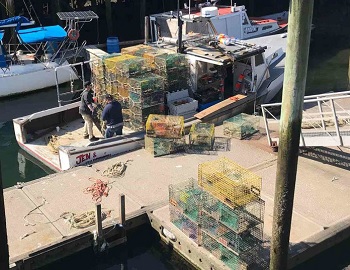
The Lunacy of Global Seafood Supply Chains
Like all global supply chains right now, this one feels unstable and unsustainable. Most of the seafood we eat in America, even in Gloucester, the country’s oldest seaport, comes from overseas. Most of what local fishermen catch is sent elsewhere. “The models aren’t designed to feed local and regional markets,” Tolley says. Those famous fish sticks bearing the logo of a Gloucester fisherman? By the time they reach your frozen foods section, they’ve made an exhausting global journey, exported for processing, then reimported. Nearly 500 commercial boats fished out of Gloucester a decade ago. Today, there are two dozen. This reflects both the decades-long collapse in groundfish stocks—the cod and haddock that once abounded in the cold waters off Cape Ann—and ever-more-aggressive federal measures limiting who can fish and for how much. >click to read< 09:07
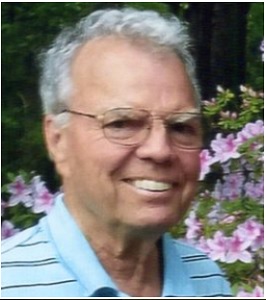
Captain David Vincent Haynie Sr., Reeadville Va.
David Vincent Haynie, Sr., age 81, of Reedville died Sunday, May 17 from complications of lung cancer. He was predeceased by his father and mother, Capt. E. Vincent Haynie and Frances Armsworthy Haynie. He is survived by his wife of 41 years, their children and grand children, family, and friends. His maritime career began at age 16 rowing the striker boat on his father’s menhaden fishing vessel in Lewes, DE. He owned and was captain on his trawler F/V Lady Jennifer operating from Texas to New Hampshire. He was a menhaden fish spotter from 1965 to 1974 and a well respected captain serving on numerous menhaden vessels for 31 years on the Chesapeake Bay, North Carolina and the Gulf of Mexico. >click to read< 07:56
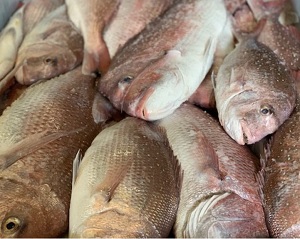
Fears of corporate takeover as SA Government seeks to put quotas on fisheries
Converting commercial fishing into a quota system could leave the industry open to corporate takeover, industry stakeholders fear, as the State Government seeks to tighten the net on fisheries with major reforms. SA Primary Industries Minister Tim Whetstone this month outlined key goals of a $24.5 million Marine Scalefish Fishery reform package he hoped to have in place by mid-2021, which would allocate transferable quotas to commercial fishing licenses. Marine Fishers Association executive officer Gary Morgan said the industry was made up of small local fishers who supplied local markets. If allocated quotas were not large enough for them to run a viable business, he said, “the majority wouldn’t have the money to buy additional quota” and could sell up. “Already, there have been companies sniffing around wanting to buy large chunks of quota,” Mr Morgan said. >click to read< 19:08
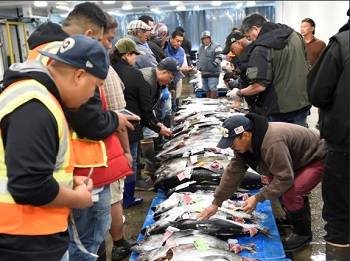
Coronavirus: Hawaii Fishermen Are Stuck In Port As Federal Aid Falls Short
With tourism all but shut down due to Hawaii Gov. David Ige’s 14-day quarantine and restaurant service reduced to takeout for social distancing purposes, there’s less demand for fish. Prices have dwindled to the point where going out on the water can be more expensive for fishermen than the price of the catch coming in. State and federal governments have done little to help out, despite the fact that fish are a critical source of protein for the islands’ residents. “We are the largest food producing industry in the state by a tremendous margin,” said Michael Goto, who’s the auction manager for United Fishing Agency in Honolulu. “If we saw a complete shutdown of fishing effort that would be devastating.” >click to read< 16:23
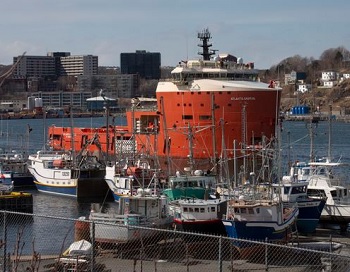
Economic storm brews over Newfoundland and Labrador
Crab season in this part of Newfoundland and Labrador normally starts at the end of April and has always marked the beginning of the fishing calendar in a place where work is still tied to the bounty of the sea. But now that their crab pots are in the water, the crews aren’t sure if they can collect them. The pandemic has cut the price of crab in half, and fishermen are worried about confrontations at the wharf with larger boat operators who can’t afford to go to sea with such deflated prices. “It looks like when someone has died and you’re just waiting around to see what’s going to happen. As oil prices have collapsed, so have revenues from key industries such as tourism, forestry, mining and the fishery because of the continuing COVID-19 fallout. Personal income and sales tax streams have shriveled. The pandemic also shut down megaprojects such as the Voisey’s Bay mine and the Muskrat Falls hydroelectric dam, and closed the province’s only oil refinery. Future offshore projects, including the $6.8-billion deep-water Bay du Nord oil field, have been put on hold. >click to read< 14:58
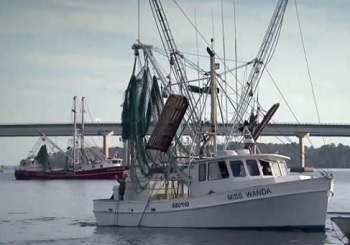
A group threatens a lawsuit over NC shrimping rules
A group pushing for changes to North Carolina’s commercial fishing rules sent formal notice last week that it plans to sue the state and one of the largest shrimping companies on the coast. The N.C. Coastal Fisheries Reform Group said that after “over a decade of unsuccessful attempts to engage in meaningful fisheries management reform dialog” with multiple governors, lawmakers and state officials it was filing a notice of claim under the Federal Clean Water Act. That starts a 60-day clock ahead of a lawsuit. The group said in a news release that, with another shrimping season approaching, time is of the essence. >click to read< 12:00
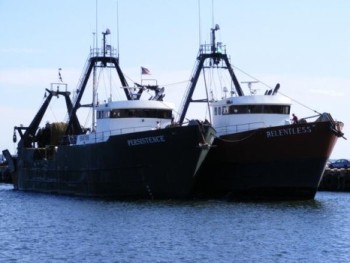
Always Top Quality! Your Seafreeze Ltd. Price Sheet for May 2020 Has Arrived!
Contact our sales team today! To review the complete price list from Seafreeze Ltd., >Click here< – “The only thing we treat our fish with, is respect” Seafreeze Ltd! >Click here< to visit our website! 10:43 
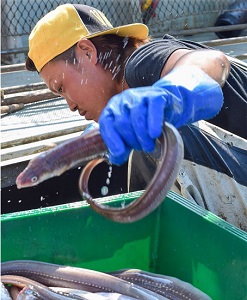
Japan: A Fisherman in the Time of the Coronavirus
This coronavirus is unbelievable. Nobody’s catching any fish in Japan, but even so, they’re selling for next to nothing. I’m a fisherman from a village in Miyagi Prefecture. Every day you hear reports that Japan’s “entering a crucial stage in the fight against COVID-19.” It’s the same for the fishing industry. Of course, we’re taking the same actions as everyone else against the coronavirus, but we have our own problems too: meager hauls and plummeting fish prices. I make all sorts of seasonal catches through the year—mainly autumn chum salmon, but also conger eels, Pacific cod, red sea bream, olive flounders, sea squirts, Kinka mackerel, Spanish mackerel, common octopuses, giant Pacific octopuses, crabs . . . in fact, so many I can’t write them all down. These are really fertile fishing grounds. Or maybe I should say they were really fertile fishing grounds. >click to read< 09:37






